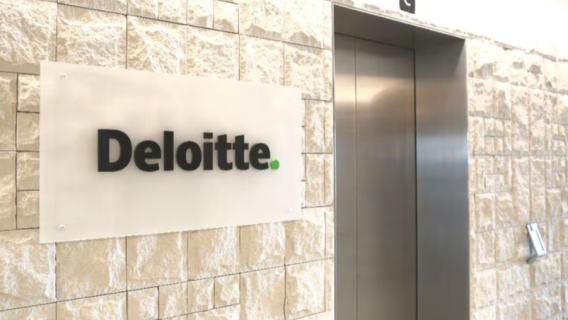
Deloitte’s $440,000 AI scandal hits Australia’s three biggest nerve points
This week news broke — and made global headlines — that Deloitte in Australia had included AI-invented references and inaccuracies in $440,000 taxpayer-funded report.
Sally Branson explains how much reputational damage has been done, and why every dollar spent on Deloitte’s report feels like money stolen from taxpayers’ own wallets.

Deloitte used tax-payer money to provide AI slop
The Deloitte AI report scandal has managed to hit every single button that Australians have big feelings about. Taxpayer dollars. Artificial intelligence. Big consulting.
Oh, and bludging. We don’t like bludgers. Unless it’s a weekend after a footy final.
Here’s what we’re dealing with: a consulting giant charging extraordinary fees for what appears to be unchecked AI-generated content, then offering a partial refund when caught.
The amount of public money involved ($440,000 for a single report) in an ongoing cost of living crisis amplifies every aspect of this issue. Every dollar spent on flawed AI outputs feels like money stolen from taxpayers’ own wallets
Many Australians are using AI, but Australians don’t yet trust AI, and they certainly have reason not to trust the outputs. We’re still in that crucial phase where public confidence in artificial intelligence is fragile. This incident validates every fear people have about automated systems making important decisions or making serious recommendations without proper human oversight.
Consultants already have a bad reputation in Australia thanks to the big guys. When organisations invest in external consultants, they’re making a deliberate decision to supplement their skills base with specialist advice and expertise. That investment only makes sense if they’re getting a quality product that adds genuine value beyond what they could produce internally.
The problem with this situation is that it undermines the fundamental value proposition of consulting. If people are going to the effort and expense of seeking external advice, they need to know it’s been properly validated and represents genuine expertise.
Too many people are treating AI as a substitute for thinking, not a tool to support it. AI can process information at scale, but it can’t make judgment calls, understand nuance, or apply critical reasoning. Using AI as a tool is one thing (we use AI in our businesses, just like so many other businesses), but we’re not sending out reams of reports with made-up data.
The audacity of charging hundreds of thousands for unverified AI outputs is breathtaking because it betrays that basic trust. It suggests clients are paying premium rates for what amounts to sophisticated copy-and-paste work.
Then there’s the partial refund, which somehow makes everything worse. Paying back only some of the money sounds a bit gross. It’s like admitting guilt while trying to keep most of the cash. This feels like corporate damage control rather than genuine accountability.
The reputation damage cascades across multiple fronts. For the consulting industry, this validates every negative stereotype about firms taking taxpayers (and clients) for a ride. We can only hope this gives contractors pause to look at perhaps smaller, boutique consultants. For AI adoption and for the work of consultants, this can be chilling – setting back digital initiatives by years, making innovation politically toxic.
If nothing else, this incident proves how easily we confuse automation with advancement and convenience with competence. Governments in particular can’t afford to treat AI as a shortcut. This case study will become the reference point for AI procurement disasters, demonstrating why human oversight and validation remain essential.
For Deloitte, this becomes part of their corporate story: the consulting firm that charged premium rates for unchecked AI work. For the broader conversation about AI in Australia, it validates scepticism and makes the careful, considered adoption we actually need much more difficult.
When trust in institutions is already fragile, and public patience with corporate excess is already thin, taking the piss with taxpayer money while hiding behind artificial intelligence isn’t just bad business. It’s a betrayal of the public trust that makes recovery extraordinarily difficult and expensive. It damages us all in the consulting business.
Everytime I comment on an issue like this, I know there are real people dealing with the fall out, so I say it all the time, let’s learn from comparison when we look at what is happening in this space.
Many of Mumbrella’s readers act in a consultancy role on some scale, how do we show up in the AI space for our clients without replacing the true elegance of expert help?



